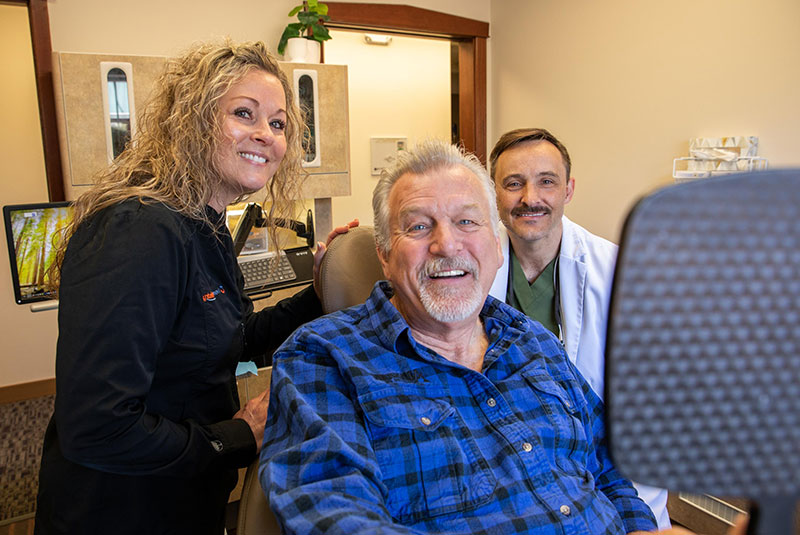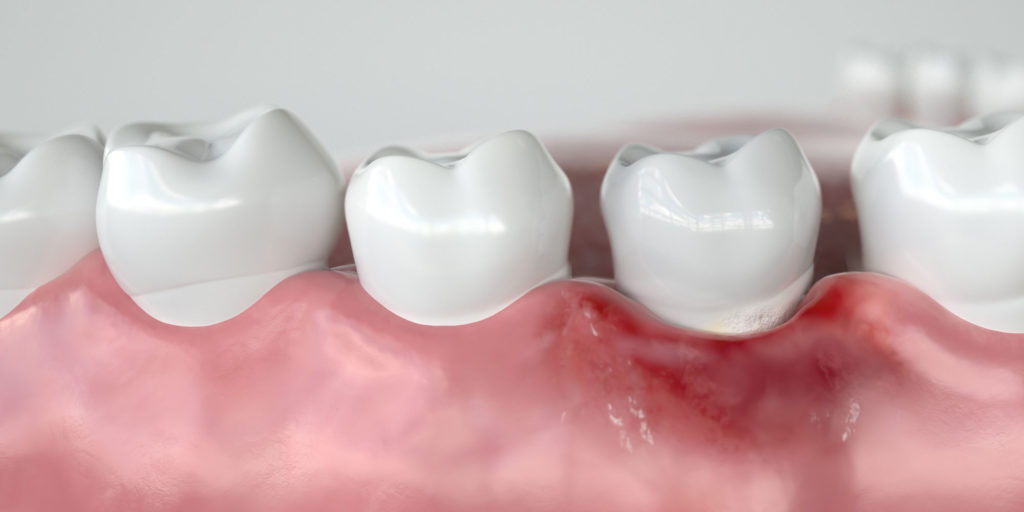


Gingivitis, the first stage of gum disease, develops when too much bacteria in the mouth accumulates and begins to cause inflammation on and around the gums. Fortunately, initial signs of gingivitis can easily be reversed with good oral hygiene practices and regular dental cleanings. Poor dental hygiene is by far the main contributor to both gingivitis and late-stage periodontal disease (periodontitis), but a good periodontist can also spot additional risk factors. Some of these factors may include:

Accumulated plaque is full of germs and bacteria, and this will eventually harden into tartar on the teeth and gums. Over time, bacteria-laden tartar will irritate and inflame gum tissue, leading to the gums beginning to peel away from the teeth. This results in bacteria-ridden periodontal pockets, which lead to serious infection and catastrophic damage if left untreated. Fortunately, Dr. Jason Allred and the gum disease experts at River City Dentistry and Implants offer a variety of solutions aimed at eliminating soft tissue inflammation at the source.
Periodontal scaling and root planing are frequently used as initial gum disease and gingivitis treatment. As a non-invasive procedure, root planing smooths enamel to encourage the growth of new tissue and prevent the future buildup of inflammation-producing tartar. Scaling also helps eliminate the buildup of plaque both above and below the gum line.
A more aggressive approach to treating gum infection is osseous surgery. Dr. Allred often utilizes this treatment to remove damaged soft tissue and reverse bone loss in patients with severe soft tissue disease. Osteoscopic surgery can eliminate decades’ worth of plaque and calculus buildup between the teeth.
Periodontal maintenance is achieved by adhering to routine follow-up visits (typically every three to four months) with your periodontist. Deep cleanings above and below the gum line, as well as in the spaces between teeth, are all part of this ongoing periodontal treatment.
Peri-implantitis affects soft tissue surrounding infected dental implants. This condition is characterized by inflammation of the peri-implant connective tissue, as well as progressive loss of bone mass that supports the implant.
Periodontal maintenance is achieved by adhering to routine follow-up visits (typically every three to four months) with your periodontist. Deep cleanings above and below the gum line, as well as in the spaces between teeth, are all part of this ongoing periodontal treatment.
Excess oral soft tissue, also known as a “gummy grin,” makes teeth appear abnormally small. Gum recontouring treatments (including gingivectomies and crown lengthening/tooth lengthening) help correct uneven gum lines and fix ‘gummy smiles.’
The frenulum is a tiny strip of soft tissue that joins the bottom of the tongue to the underside of the mouth. A frenectomy is a procedure that removes the frenulum to improve a patient’s ability to eat, speak, and chew normally.
Opposite of a crown lengthening treatment, a gum grafting treatment is a procedure that adds soft tissue to areas of the mouth where gum loss has occurred.
Periodontal maintenance is achieved by adhering to routine follow-up visits with your periodontist. Deep cleanings above and below the gum line, as well as in the spaces between teeth, are all part of this ongoing periodontal treatment.
I understand the information disclosed in this form may be subject to re-disclosure and may no longer be protected by HIPAA privacy regulations and the HITECH Act.